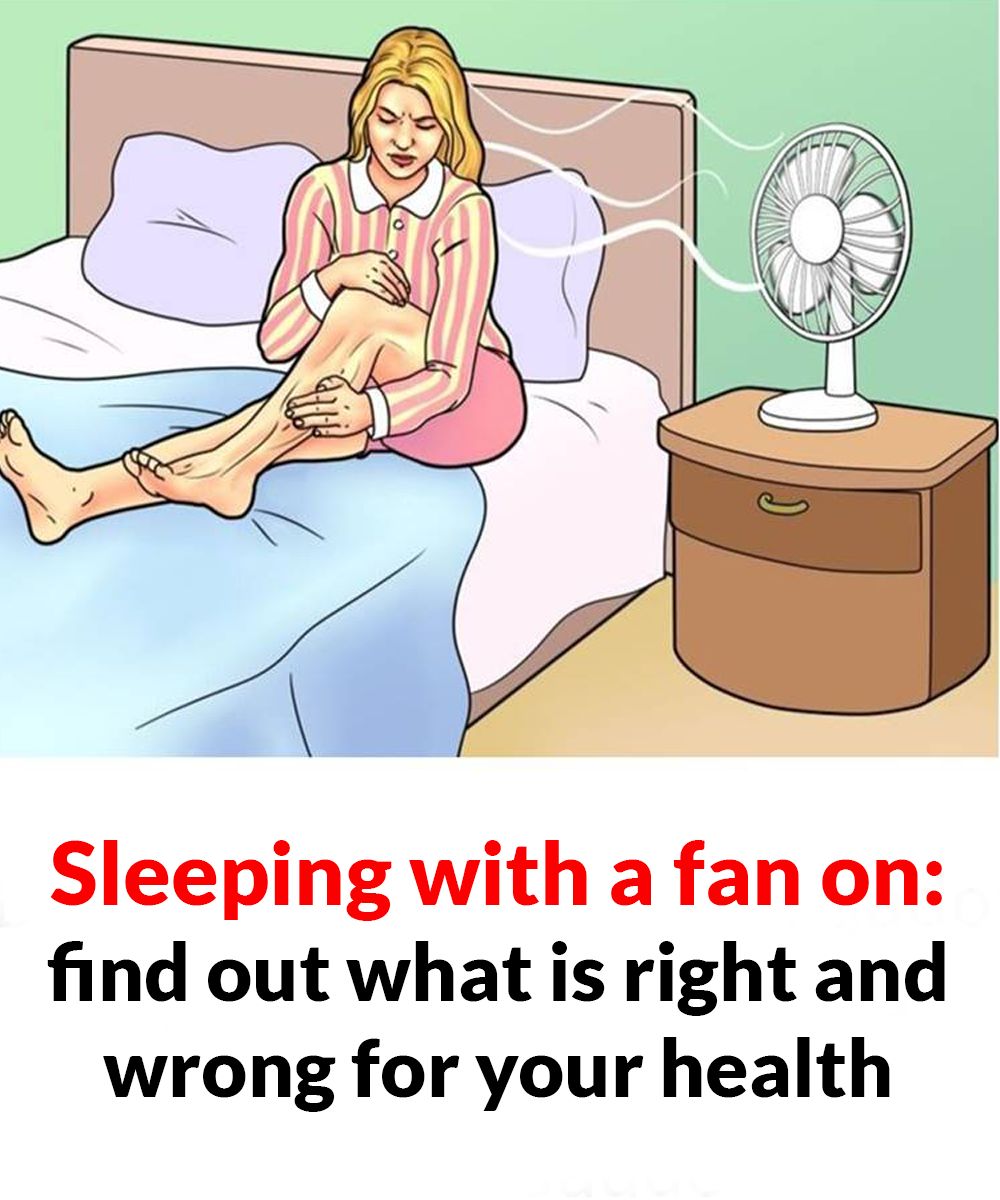Do you sleep with a fan on every night? If so, you’re definitely not alone. Many people enjoy the cool breeze and steady hum of a fan to help them wind down and drift off to sleep. It’s a common bedtime habit, especially during warmer months. The soft, consistent sound can block out noisy distractions, and the air movement can make your bedroom feel more comfortable. But while sleeping with a fan on can come with several health and comfort benefits, it’s also worth knowing that there may be a few downsides, depending on your personal sensitivities and how you use it. Let’s take a deeper look at what sleeping with a fan every night might actually be doing to your body and overall health.

To begin with, one of the most well-known perks of using a fan at night is the white noise it provides. That steady, low-frequency sound can drown out background noise like traffic, barking dogs, or even a snoring partner. For people who are light sleepers or live in noisy environments, this can make a huge difference in the quality of their rest. White noise helps your brain relax and stay asleep longer, leading to deeper, more restorative sleep. It creates a sort of audio cocoon that shields you from abrupt sounds that might otherwise jolt you awake. Another major advantage is temperature control.
Nobody sleeps well in a hot, stuffy room, and a fan can be an effective way to keep things cool without having to rely on air conditioning all night long. By circulating air, fans help regulate body temperature, which is essential for a good night’s sleep. Overheating during the night can lead to tossing, turning, and waking up feeling groggy or unrefreshed, but a well-placed fan can help prevent that. Fans also help improve air circulation, which can be especially useful if your room tends to feel stagnant or poorly ventilated. Better airflow can reduce the feeling of stuffiness and even help prevent the buildup of allergens like dust or pet dander. For people with asthma or allergies, this can be a small but helpful improvement in nighttime breathing comfort.
Interestingly, some research has even explored the connection between fans and infant sleep. A few studies suggest that having a fan running in a baby’s room might lower the risk of sudden infant death syndrome (SIDS). While the science isn’t fully settled on this, researchers believe that improved air circulation and reduced carbon dioxide levels around the baby might play a role. Though more studies are needed, it’s a fascinating possible benefit that many parents find reassuring. Despite these benefits, however, there are some potential drawbacks to keep in mind. One of the most common complaints from regular fan users is dryness. Since fans move air constantly, they can lower the humidity level in your bedroom, which may lead to dry skin, chapped lips, or irritated eyes. This effect can be even more pronounced during the winter months when indoor air is already dry.
If you notice this happening, pairing your fan with a humidifier might help maintain a healthier moisture balance in your room. Another issue is muscle stiffness. If your fan is pointed directly at your body for hours while you sleep, the cold air may cause certain muscles to tense up. You might wake up with a sore neck or back and not realize your fan was the culprit. A simple fix is to adjust the fan so that it circulates the air more generally, rather than blowing directly on you. It’s also important to keep your fan clean. Over time, dust can accumulate on the blades and housing, and when the fan is turned on, it can blow those particles into the air. This can actually increase your exposure to allergens if the fan isn’t regularly cleaned. Lastly, while many people love the sound of a fan, some individuals may find that they become more sensitive to noise over time. If that’s the case, switching to a quieter model or using a sound machine might be a better fit. And don’t forget the environmental aspect—running a fan all night uses electricity. While it’s less than an air conditioner, it still adds to your energy bill and carbon footprint. Choosing an energy-efficient model or using a timer to shut it off after you fall asleep can help reduce that impact. In the end, sleeping with a fan on can be a helpful and comforting part of your nightly routine, as long as you’re mindful of how you use it and stay aware of how your body responds.





